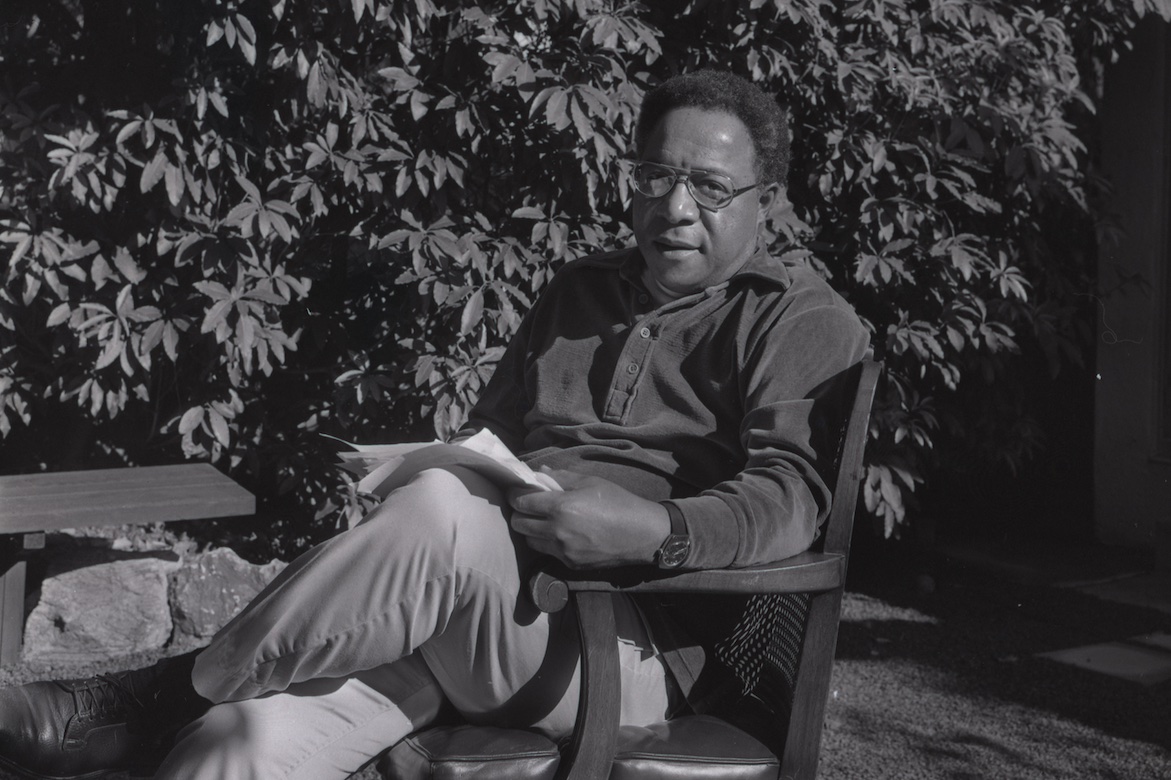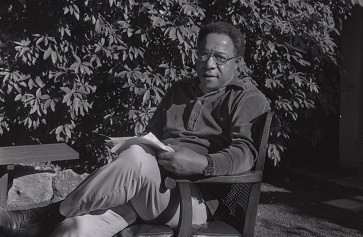Time capsule: Alex Haley’s deep dive on Malcolm X and ‘Roots’ at UCLA
50 years ago, the celebrated author spoke in Royce Hall about his work and his relationship with the slain Black activist

Los Angeles Times Photographic Archive, Library Special Collections, Charles E. Young Research Library, UCLA
Alex Haley in 1976, the year “Roots” was published.
UCLA Newsroom | February 14, 2023
In Malcolm X’s short life, it’s unlikely there was a writer closer to him than Alex Haley.
Between 1963 and the Black leader’s assassination in early 1965, the two men spent nearly a thousand hours in conversation in a tiny Greenwich Village apartment for what would become “The Autobiography of Malcolm X,” today widely considered a foundational text of the struggle for Black rights in 20th-century America.
On the evening of Feb. 14, 1973, Haley visited UCLA at the invitation of the now-defunct Associated Students Speakers Program. In a packed Royce Hall, he spoke about Malcolm X’s life and legacy, fielded questions from students and discussed his research for his upcoming book. “Roots: The Saga of an American Family,” which was published three years later, was a combination of fact and fiction that traced Haley’s family history back to a single ancestor kidnapped from Africa and sold into slavery in America.
“Roots,” which earned Haley a Pulitzer Prize and was adapted into a highly successful ABC miniseries in 1977, spurred widespread academic and public interest in the histories and genealogies of Black Americans. At the time of its publication, the New York Times Book Review wrote, “No other novelist or historian has provided such a shattering, human view of slavery.”
Haley’s full 103-minute talk at UCLA was digitized by Derek Bolin in 2013 from original 7-inch reel-to-reel audio tapes as part of the UCLA Department of Communication’s archive project on campus speeches from the 1960s and ’70s. Below are four short clips, edited for brevity and clarity, from the talk.
How Malcolm X nearly quit in the early stages of the autobiography
Several months into their project, Haley had grown frustrated at his subject’s unwillingness to open up about his personal life. Malcolm X, who preferred to focus on politics, had become equally resentful and decided to leave Haley’s apartment for good — until the author posed a pivotal question.
Malcolm X predicts his own death
Haley recalls that after they finished the manuscript of the autobiography, Malcolm X expressed his fear that he wouldn’t live to see its publication.
How white readers respond to Malcolm X’s autobiography
Haley talks about the power of “The Autobiography of Malcolm X” to change white readers’ perceptions about race in America.
The Black American experience, as told in ‘Roots’
Haley says that by tracing 200 years of his own family’s history, he is able to tell the story of the all Black people in America.
This article originally appeared at UCLA Newsroom. For more news and updates from the UCLA College, visit college.ucla.edu/news.




